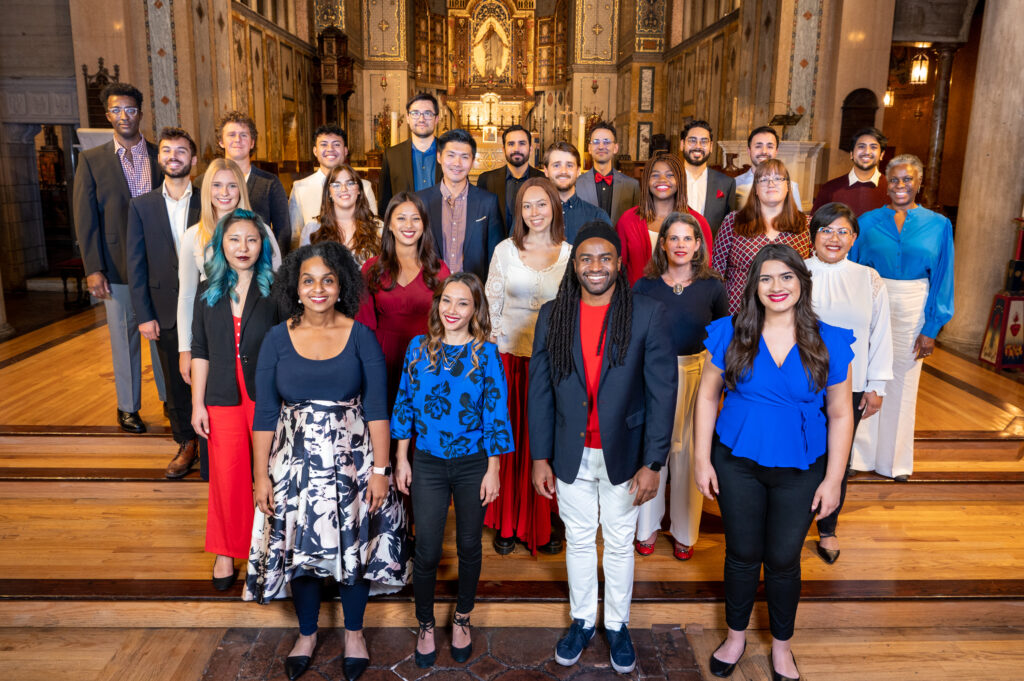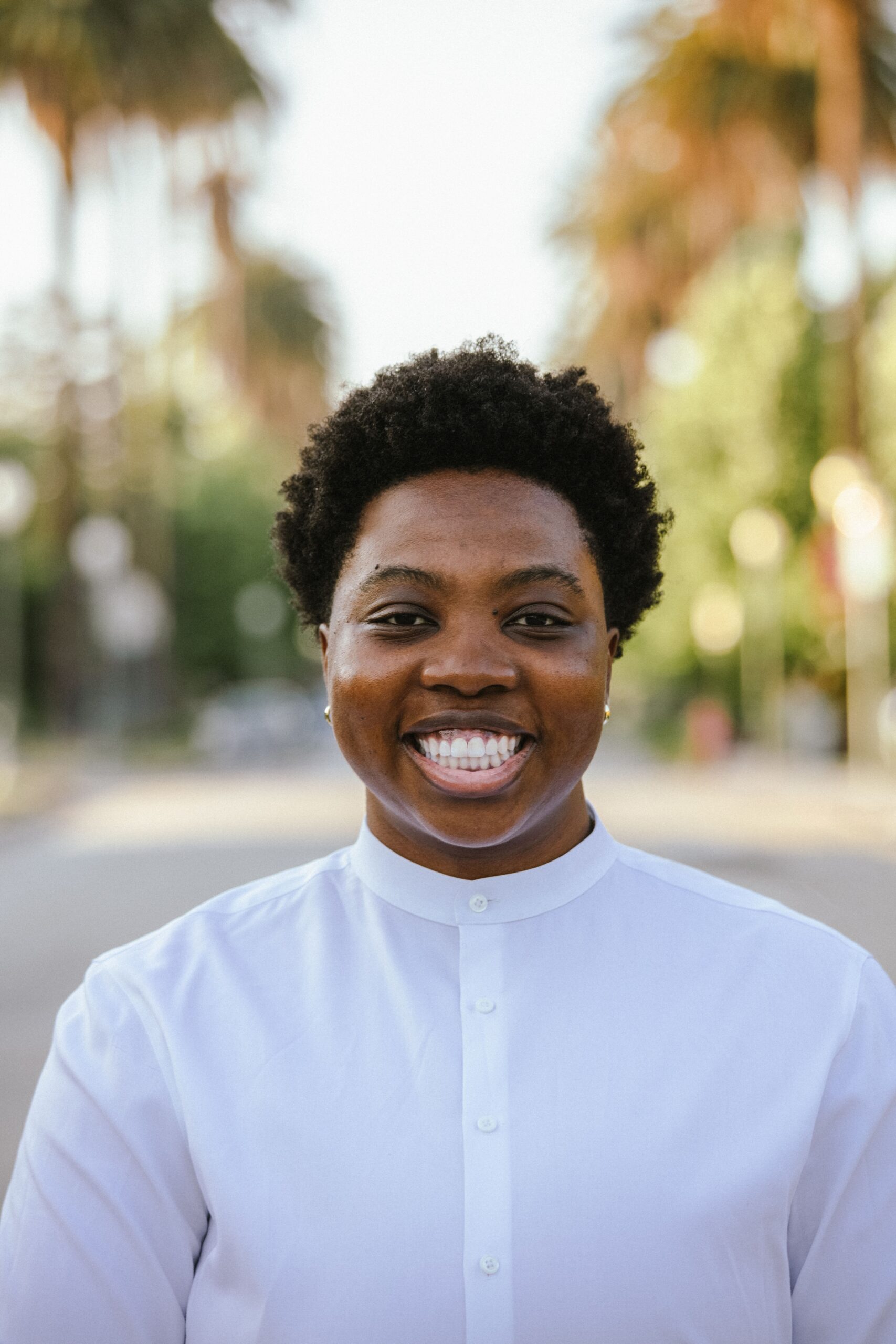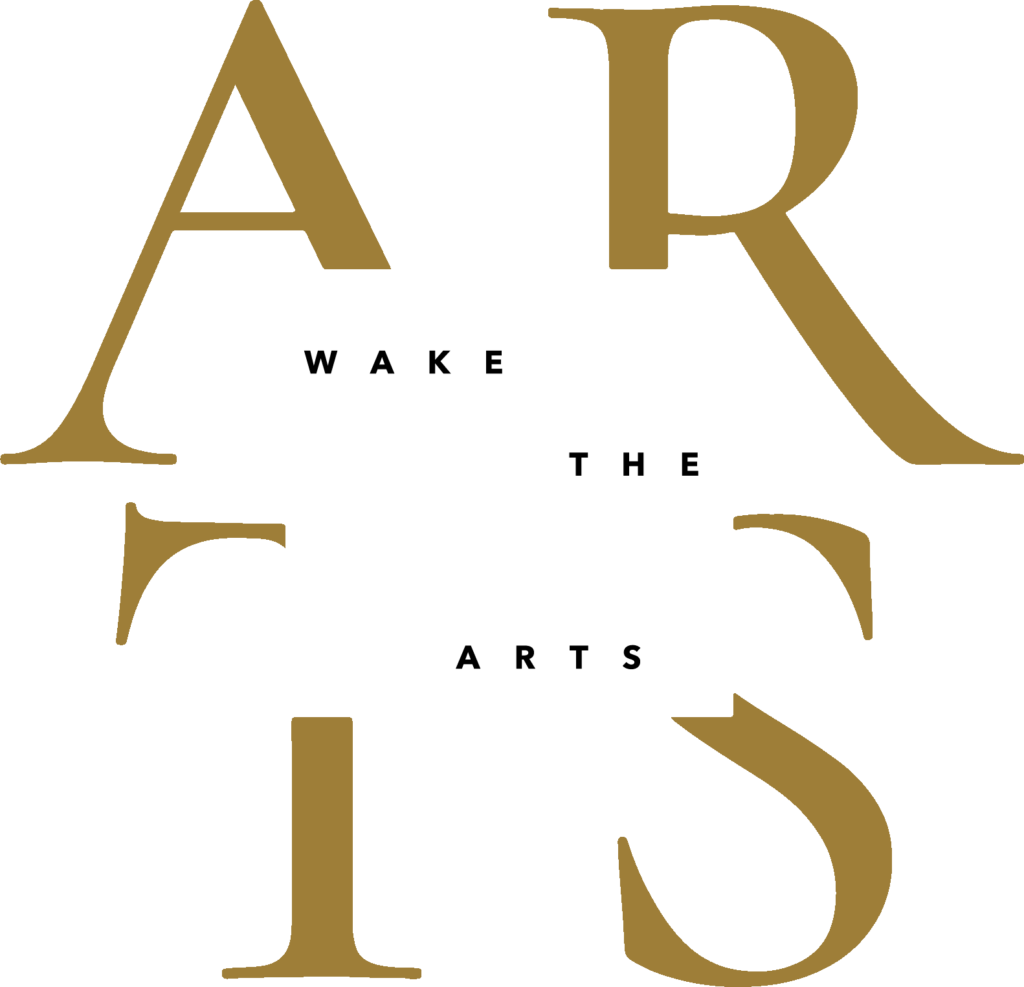Tonality, vocal ensemble
Monday, January 20, 2025
7:30 PM
Wait Chapel

Established in 2016, Tonality is an award-winning ensemble known for “open hearted singing” (Lauri’s List). Tonality was recently recognized as a 2024 GRAMMY® winner in New Age, Ambient, or Chant Album for Carla Patullo’s “So She Howls” with the Scorchio Quartet. In December they were nominated for a 2025 GRAMMY® in the Best Arrangement, Instrumental, or A Capella category for the arrangement of “Rose Without the Thorns.”
Tonality is led by founder and Artistic Director Alexander Lloyd Blake (WFU ’10). Blake imagined Tonality as an ensemble that represents the diverse cultures and ethnicities within the Los Angeles area. Within a year of its forming, Tonality’s mission evolved to use their collective voices to present concerts on themes of social justice in hopes to act as a catalyst toward empathy and community activism. The group premiered its first album in 2019 titled Sing About It.
Tonality is the recipient of the 2020 Chorus America/ASCAP Award for Adventurous Programming, a prize given for commitment to singing and commissioning new works.
Tonality has collaborated with choral composers and film composers to create the works presented in concert, striving for diverse voices and perspectives within the composer community. Collaborators include Joe Trapanese, Roman Gianarthur, Gaayatri Kaundinya, Reena Esmail, Shawn Kirchner, Zanaida Robles, Moira Smiley, Alex Wurman and composer Michael J. Giacchino. Tonality has performed with MacArthur Fellow Taylor Mac, Pete Townsend of The Who, pianist Lara Downes, internationally acclaimed performer Björk and most recently Dutch DJ Tiësto and Kelly Clarkson in support of her album Chemistry.
“America Will Be“
Declaration
Alexander Lloyd Blake and Joe Trapanese
1232 Lyfe
Music and Text by Alexander Lloyd Blake
In This House
Music by Cristian Larios
Text by Cristian Larios and the ‘Know and Exercise Your Rights’ presentation of The Chicago Legal Protection Fund Community Navigator Fund
Tulips
Music by Shawn Kirchner
Text by Sylvia Plath
Bridge Over Troubled Water
Music and Text by Paul Simon, Arr. by Nathan Heldman
New Collective Consciousness: I. We Know
New Collective Consciousness: II. How Dare You
Music by Joseph Trapanese
I. Text by Andri Snœr Maganason
II. Text by Greta Thunberg From her speech to the United Nations on 23 September 2019 and her speech to a climate rally in Edmonton (Alberta, Canada) on 18 October 2019
Build Me Up
Music and Text by Roman GianArthur
Little Rose
Music by Shawn Kirchner
Text by Shawn Kirchner, Quotation from the spiritual Steal Away
A Change is Gonna Come
Music and Text by Sam Cooke Arr. by Tehillah Alphonso
No, Child. No, Child.
Music and Text by Alex Wurman
America Will Be!
Music by Joel Thompson
Text by Langston Hughes, Emma Lazarus, Students from the Freedom High School Chorus, Orlando, Florida; Alterations by Joel Thompson
“#unitedwedream” (From “American Dreamers”)
Music by Melissa Dunphy, Text by Claudia D. Hernández
Program subject to change at artist’s discretion.
Adult $25
Senior $20
Student (non-WFU) $10
Child $5
WFU and Medical School Students, Faculty, Staff and Retirees – Free
Wake Forest University has a new ticketing software system. We are excited for this upgrade as it will streamline your attendance at WFU events.
Click Here for Tickets to Tonality.
Click Here for a Subscription to all 2024-25 Secrest Artists Series concerts.
6:40 pm: Join our pre-concert talk given by Dr. Claire B. Crawford who will discuss the power of song and sound in the making of a musical democracy.

Claire B. Crawford is an assistant professor of Africana Political Thought in the Department of Politics and International Affairs and the Program in African American Studies at Wake Forest University. She received her Ph.D. in Political Science and International Relations from the University of Southern California. Her research focuses on Black liberation movements, political identity formation, and sonic politics. Her publications include an article in Social Science Quarterly (2021). Her current book project, Hum So the Devil Doesn’t Hear You: Southern Black Rural Political Existences in the Otherwise, is an interdisciplinary study that attempts to deeply understand how we can consider otherwise possibilities of democratic engagement as practiced in the murmurs, breaks of speech, and hums of Black rural Southern life.




